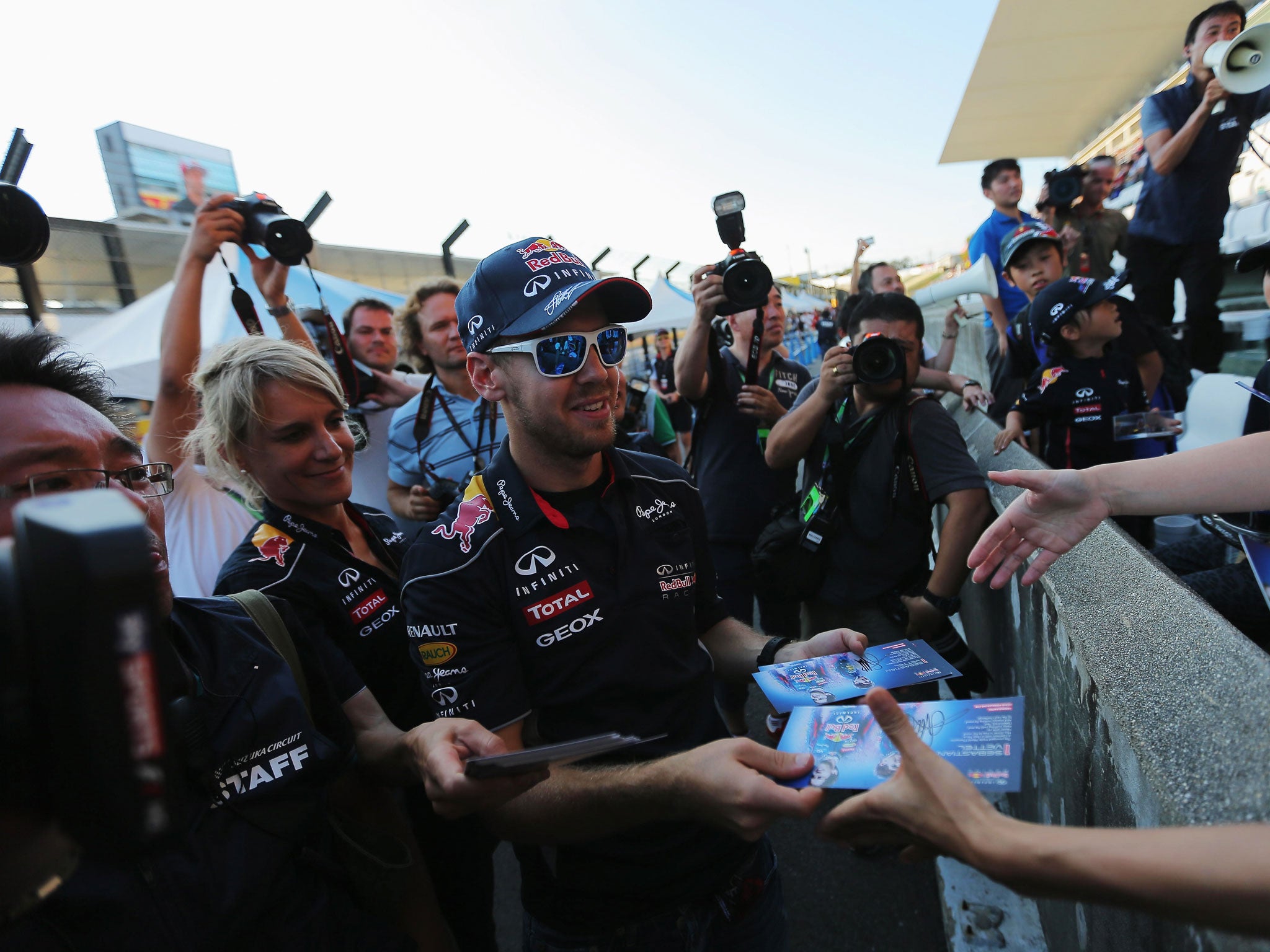F1: Five ways to revitalise Formula One following a fourth straight title for Sebastian Vettel
After an anticlimactic finish to the season on Sunday, David Tremayne outlines his plan to boost flagging interest in the sport

Your support helps us to tell the story
From reproductive rights to climate change to Big Tech, The Independent is on the ground when the story is developing. Whether it's investigating the financials of Elon Musk's pro-Trump PAC or producing our latest documentary, 'The A Word', which shines a light on the American women fighting for reproductive rights, we know how important it is to parse out the facts from the messaging.
At such a critical moment in US history, we need reporters on the ground. Your donation allows us to keep sending journalists to speak to both sides of the story.
The Independent is trusted by Americans across the entire political spectrum. And unlike many other quality news outlets, we choose not to lock Americans out of our reporting and analysis with paywalls. We believe quality journalism should be available to everyone, paid for by those who can afford it.
Your support makes all the difference.1) Introduce a budget cap
Red Bull, for whom Sebastian Vettel cruised to the title with three races to spare, and the other top teams spend close to $300m annually on creating cars. The back-of-the-field teams spend $100m to $120m.
There are probably only four teams that are not seriously hurting financially, and some are running close to bankruptcy at times. This made for an uneven playing field this season and a Vettel cakewalk.
Via the Formula One Teams Association, some have tried to observe a resource restriction agreement to limit spending. Things such as track testing, aerodynamic research and race team staffing levels have been curbed, but unless all of the teams sign up to such plans, nothing will really change in the sport. The rich teams will inevitably spend their way to more success, leaving the poor teams struggling to survive.
Forensic accountancy is so advanced that a mandatory budget cap is feasible and would help to close up the field. At a time when teams are used to everything else being regulated to the nth degree, expenditure is the last bastion of the old days and this has to change.
2) Humanise the racing
Formula One has to allow drivers to be themselves and not come over as plastic Action Man kind of heroes. People respond to people.
When you read press releases quoting drivers saying, “We need to maximise the potential of our car,” you know that words are being put into their mouths, and anodyne words at that.
The sport needs to make the stars more available and allow them to be honest and open, like Kimi Raikkonen always is. This involves PR people being reined in as many feel it necessary to edit or restrict the drivers’ every word and deed.
Vettel recently erased a lot of the bad he did in Malaysia with his post-race “doughnut” skids on the track. Fans enjoy such displays of emotion. The stewards have agreed to now condone doughnuts, as long as they are done in the right place. That’s a great step forwards.
3) Make F1 less elitist
America’s Indycar championship can still teach Formula One a huge amount about how to make fans feel they are getting something back in return for the huge investments they are required to make in order to buy tickets. At next year’s Indianapolis 500, for example, the minimum ticket price is only $45 (£28). In Formula One, it is usually several times that amount.
4) Control aerodynamics
The introduction of the drag reduction system (DRS) enables a car close behind another to stall its rear wing and thus generate greater speed so that it can overtake.
Some purists argue that it makes passing too easy, and hate it. But it is preferable to having a following car stuck in another’s wheeltracks because the moment it gets close to the turbulent wake of the car ahead it kills the following car’s aerodynamics, making it understeer helplessly.
In the old days, the slipstream effect enabled a following car to overtake because the vacuum created by a car in front sucked it along faster; once the following car had overtaken, then it risked being the one to create the vacuum. DRS has effectively restored that.
But aerodynamics still exert far too much influence and urgent steps need to be taken to reduce that.
5) Take less, invest more
The series promoter does no real promotion, leaving that to the individual races, teams and sponsors. It is about time Formula One went back to tub-thumping promotion to attract new audiences.
CVC Capital Partners, the company that controls the sport, exists to make money, but it takes more than half of the £1.4bn a year that Formula One generates. This means not enough is being invested in the sport. If CVC created some sort of national scholarships infrastructure, for example, it might engage younger fans as they would be able to watch new drivers of their own age progress through the ranks, and therefore feel more in touch.
Join our commenting forum
Join thought-provoking conversations, follow other Independent readers and see their replies
Comments